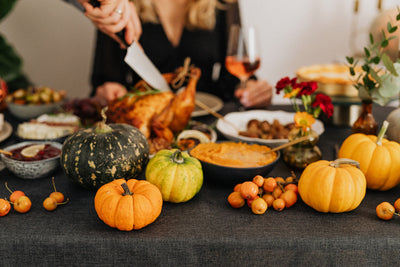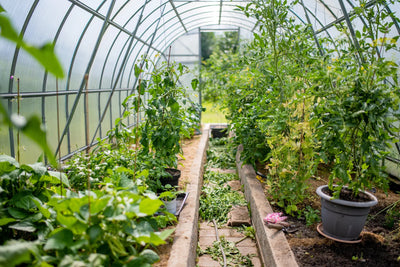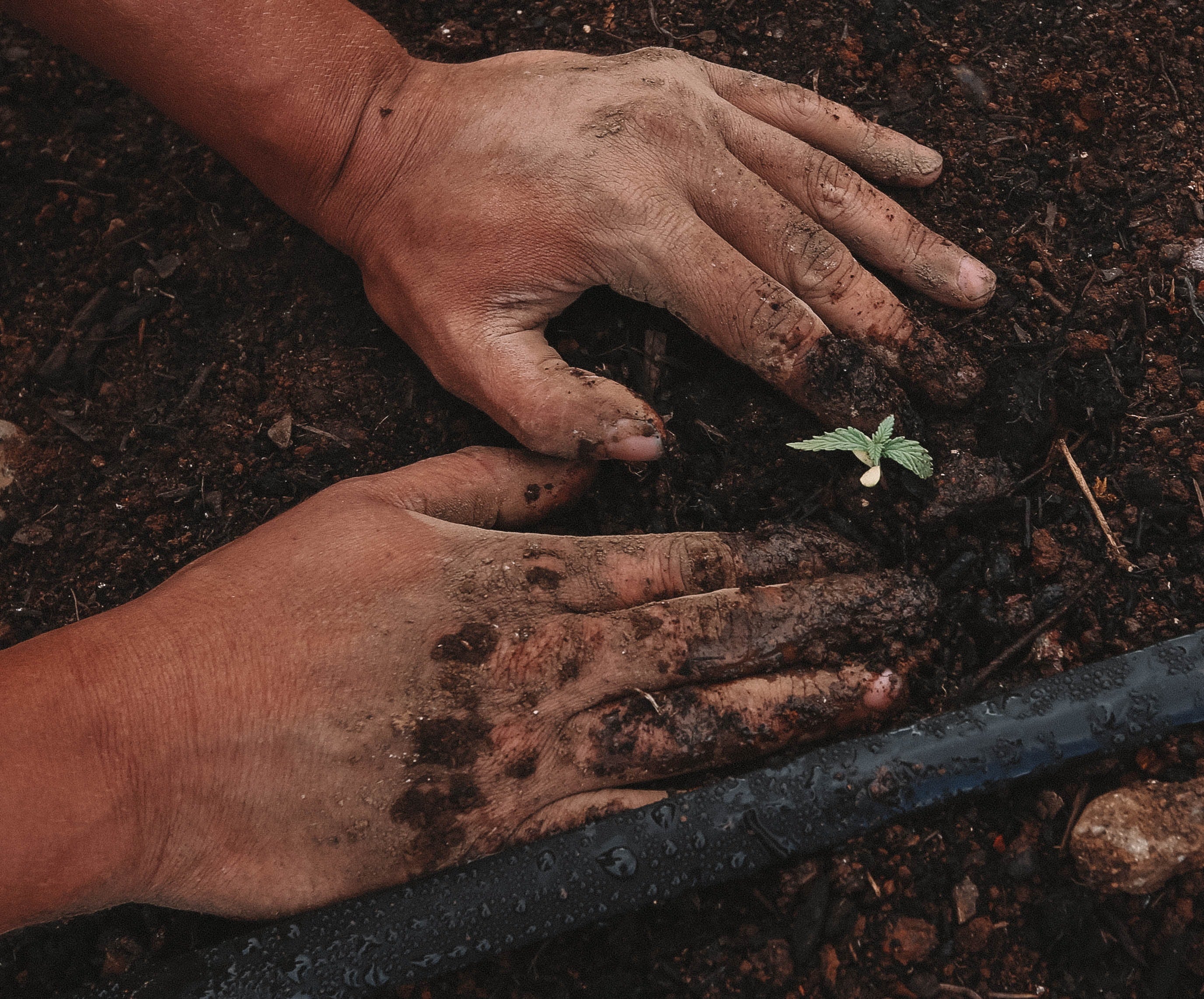In an age where supermarkets dominate our food supply, the idea of growing your own food might seem quaint—or even unnecessary. But with rising concerns about food independence, genetically modified crops, and supply chain disruptions, more people are turning to heirloom seeds as a path to true food independence. If you're looking for a sustainable, reliable way to grow your own food and break free from the modern food system, heirloom seeds are a perfect solution. Here's why.
What Are Heirloom Seeds?
Heirloom seeds are seeds that have been passed down from generation to generation, typically for at least 50 years, without any genetic modification or hybridization. These seeds come from plants that have been naturally pollinated, which means the resulting plants will be true to type—they’ll have the same characteristics as the parent plants.
Unlike hybrid seeds, which are often bred for specific traits like shelf life or uniformity, heirloom seeds preserve a wide variety of plant characteristics. This includes taste, color, size, and nutritional value. Heirloom varieties have been preserved for their unique qualities, often offering superior flavor and nutrition.
The Difference Between Heirloom, Hybrid, and GMO Seeds
To fully understand the value of heirloom seeds, it’s important to distinguish them from hybrid and genetically modified (GMO) seeds. Hybrid seeds are created by crossing two different plant varieties to produce a plant with specific desired traits, like disease resistance or higher yields. However, the seeds produced by hybrid plants typically don’t grow true to type, meaning you can’t reliably save and replant them year after year.
GMO seeds, on the other hand, are created using advanced genetic engineering techniques to introduce new traits into a plant's DNA. While these seeds are designed to improve crop production, they often come with concerns about environmental impact, health risks, and corporate control over seed availability.
Why Heirloom Seeds Are Essential for Food Independence
When you're working toward food independence, relying on heirloom seeds offers several critical advantages over hybrid and GMO seeds.
1. Seed Saving for Future Planting
One of the most significant benefits of heirloom seeds is that they can be saved and replanted year after year. This means that once you’ve started your heirloom garden, you’ll have a perpetual source of seeds, eliminating the need to purchase new ones every season. This self-sufficiency is a cornerstone of true food independence, allowing you to maintain control over your food supply no matter what external factors are at play.

The Practice of Seed Saving
Saving seeds from heirloom plants is simple. As your plants grow and produce fruit, you can harvest the seeds from the best and healthiest plants, ensuring that you’re cultivating the strongest varieties year after year. Over time, your plants will become better adapted to your local growing conditions, resulting in healthier crops with higher yields.
2. Greater Nutritional Value
Many heirloom varieties are more nutrient-dense than their hybrid or GMO counterparts. Industrial agriculture has prioritized traits like size, shelf life, and resistance to pests, often at the expense of nutrition. Heirloom plants, on the other hand, have been selected for their flavor and nutritional value over generations.
If you're aiming for food independence, the nutritional quality of the food you grow is crucial. Heirloom seeds produce food that is rich in vitamins, minerals, and antioxidants, ensuring that your homegrown produce provides you with the nutrients you need to thrive.
Flavor Matters, Too
In addition to being more nutritious, heirloom crops often taste better. Many people who switch to growing heirloom vegetables and fruits are amazed by the superior flavor. The rich, complex tastes of heirloom tomatoes, peppers, and melons, for example, can be a real revelation compared to the bland, mass-produced varieties found in most supermarkets.
3. Preserving Biodiversity
Heirloom seeds are key to preserving biodiversity in agriculture. Over the last century, industrial farming has drastically reduced the number of plant varieties available to consumers. According to the Food and Agriculture Organization (FAO), around 75% of plant genetic diversity has been lost as farmers worldwide have switched to growing a small number of high-yielding crops.
By planting heirloom seeds, you are contributing to the preservation of diverse plant varieties that might otherwise disappear. This biodiversity is essential for food independence, as it helps ensure that we have a wide range of plants with different resistances to pests, diseases, and changing climate conditions.
Building a Food Independence with Heirloom Seeds
Achieving food independence means creating a resilient, sustainable system that isn’t reliant on industrial agriculture or global supply chains. Heirloom seeds play a vital role in this system.
1. Adaptability to Local Conditions
Heirloom plants are often better suited to local growing conditions than commercial hybrids. Over generations, these seeds have been adapted to thrive in specific climates and soil types, making them more resilient in the face of changing environmental conditions.
Climate Adaptation and Heirloom Seeds
As climate change continues to affect weather patterns worldwide, heirloom seeds provide a crucial advantage. Because these seeds represent such a wide range of genetic diversity, they are more likely to include plants that can withstand unusual or extreme weather conditions. By planting a variety of heirloom seeds, you can create a more resilient garden capable of surviving droughts, floods, or heatwaves.

2. Food Independence from Corporations
One of the biggest benefits of heirloom seeds is the food independence they offer from corporate control. Many hybrid and GMO seeds are patented by large agribusinesses, meaning you are not legally allowed to save and replant them. This forces farmers and gardeners to buy new seeds each year, creating a cycle of dependence on seed companies.
With heirloom seeds, you own your seeds outright. You can save them, share them, and trade them without any restrictions. This autonomy is a key component of food independence, allowing you to take control of your food supply without relying on corporations.
3. Supporting Local Seed Networks
Another advantage of heirloom seeds is that they can help strengthen local seed-saving networks. Many communities have established seed banks or seed libraries where gardeners can share and trade heirloom seeds. By participating in these networks, you can access a wider variety of seeds, improve your gardening skills, and contribute to a more resilient local food system.
Getting Started with Heirloom Seeds this Coming Winter Season
If you're new to the world of heirloom gardening, getting started is easier than you might think. Begin by researching which heirloom varieties grow best in your area, paying attention to your climate and soil conditions. Consider starting with staple crops like tomatoes, beans, and squash, which are easy to grow and save seeds from.
Where to Buy Heirloom Seeds?
Introducing Seed Armory's Winter Sowing Vault for Cold-Resistant Crops
Looking to extend your growing season and ensure food independence even through the cold months? Seed Armory's Winter Sowing Vault is your solution! Featuring 20 Non-GMO Heirloom Seed Varieties that thrive in cooler temperatures, this vault is specifically designed for winter sowing. These seeds are perfect for the eco-conscious gardener looking to start early with cold-resistant plants that flourish even in winter.
The Winter Sowing method is an eco-friendly and cost-effective approach to gardening, using recycled containers as mini-greenhouses to get your garden growing long before spring arrives. Whether you're a seasoned gardener or a beginner looking for a sustainable way to jump-start your planting season, this vault has everything you need to make your winter garden a success.
Discover the power of heirloom seeds and secure your food independence with the Winter Sowing Vault. Learn more at Seed Armory.
Heirloom Seeds as a Path to True Food Independence
By choosing heirloom seeds, you’re taking an essential step toward true food independence. Not only will you enjoy better-tasting, more nutritious food, but you’ll also be preserving biodiversity, building a resilient food system, and freeing yourself from the corporate seed industry. Whether you’re a seasoned gardener or just starting your journey toward self-sufficiency, heirloom seeds offer a powerful way to secure your food supply for generations to come.
Take the leap beyond the supermarket—embrace heirloom seeds, and cultivate a future where food independence is within your grasp.











